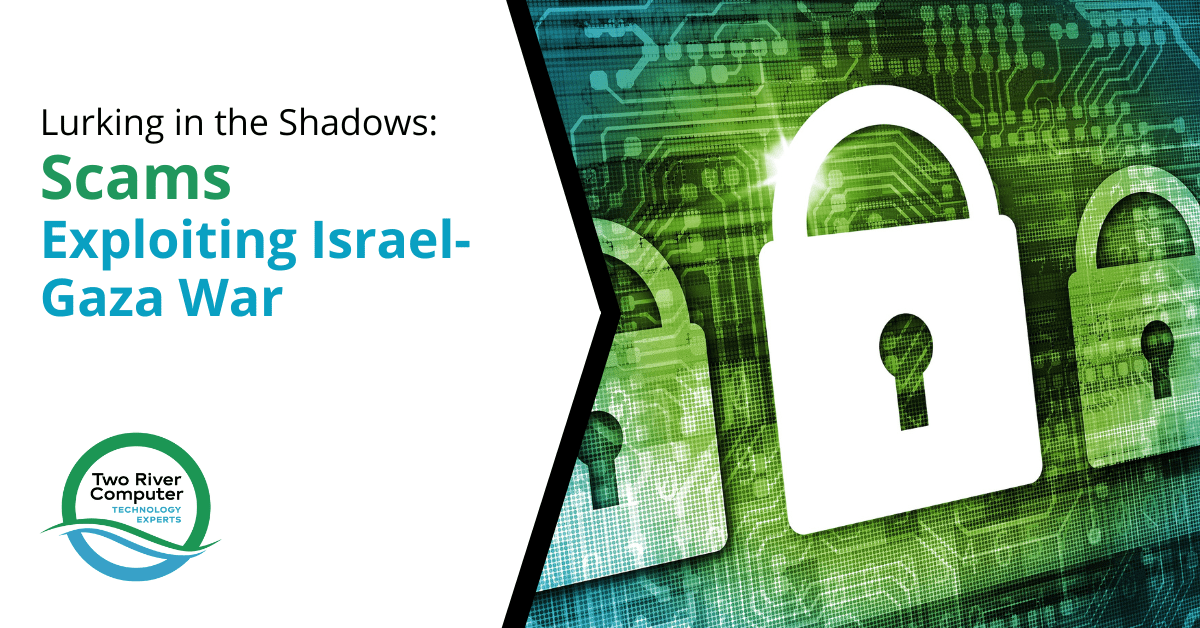
Following the protracted and catastrophic Israel-Gaza conflict, a depressing increase in con artists has surfaced, preying on the good intentions of those trying to change the world. The tragedy that is playing out has given dishonest people and organizations a great opportunity to take advantage of the kindness of well-meaning benefactors.
This article explores the sneaky world of charity frauds, especially those that spread via email campaigns and social media, and how you can protect yourself.
The Disturbing Landscape of Israel-Gaza War Scams
Types of Fraudulent Schemes
- Fake Charity Websites and Social Media Pages – Scammers use exact or similar names, logos, and website designs to build false internet platforms that imitate respectable charitable organizations. This reflects a concerning pattern in which dishonest actors conflate legitimate and fraudulent endeavors.
- Direct Contact Scams – Perpetrators approach individuals through various channels, including in-person encounters, mail, phone calls, emails, text messages, and social media. They might pose as agents of reputable nonprofit organizations or make up stories about having raised money for particular people or needy families.
- Fake Donation Collection Pages – Scammers establish counterfeit donation pages, soliciting funds for fictitious causes while posing as legitimate charities. This approach takes advantage of people’s tendency to trust reputable companies and their desire to make a significant contribution to worthy causes.
- Targets of Deception – Major charities, especially those evoking strong emotions and goodwill, become prime targets for scammers. Furthermore, these fraudulent scams also target nonprofits that help sick children, veterans, and animals.
How to Prevent Becoming a Victim
- Verify Charities – Check the authenticity of the charity before making a donation using reliable resources like Charity Navigator. Verifying information twice can help you make sure the people who need your support receive it.
- Be Skeptical of Direct Approaches – Use caution when someone asks you directly for money. Authentic charitable organizations frequently offer safe avenues for donations, and unsolicited correspondence can suggest possible deception.
- Examine Donation Gathering Websites – Look into the legitimacy of internet donation pages. Verify that the information is accurate, the payment methods are safe, and the charity’s legitimate processes are being followed.
Scam Warning: Cryptocurrency’s Role in Deception
According to recent reports, there has been a concerning trend in bitcoin scams, with fraudulent payments totaling $1.6 million connected to the conflict between Israel and Gaza. This concerning development highlights the necessity for potential contributors to be very vigilant and alert.
Taking Action: Making Informed Contributions
It is essential to approach charitable contributions with discernment in light of the recent increase in frauds. We can all work together to oppose the attempts of con artists looking to take advantage of the Israel-Gaza conflict for their own financial benefit by remaining aware, confirming the legality of groups, and practicing cautious giving.
Empowering Responsible Giving
It becomes increasingly important for us to remain committed to responsible giving as we negotiate the complexity of a world in crisis. At Two River Computer, we support charitable endeavors that have a purpose, but we also advise you to exercise caution. When we work together, we can protect against those who would take advantage of compassion for their own evil ends and have a beneficial influence.
Please contact Two River Computer for additional information on responsible donation and how you may support sincere initiatives. Let’s responsibly make an impact.


